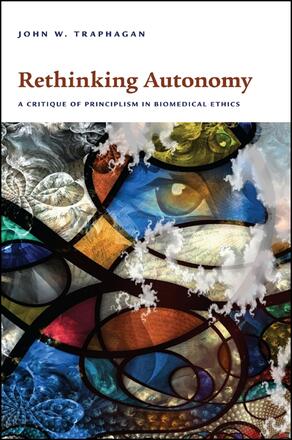
Rethinking Autonomy
A Critique of Principlism in Biomedical Ethics
Alternative formats available from:
Provides a critique of and alternative to the dominant paradigm used in biomedical ethics by exploring the Japanese concept of autonomy.
Description
This groundbreaking book offers a critical examination of the concept of autonomy, one with major implications for biomedical ethics. Working from the perspectives of ethnography and medical anthropology, John W. Traphagan argues that the notion of autonomy as a foundational principle of a common morality, the view dominant in North America, is inadequate as a universal moral category because culture deeply influences how people think about autonomy and the fundamental nature of being human. Drawing from fieldwork in Japan, Traphagan reveals a notably different sensibility, demonstrating how Japanese moral concepts and actions are based upon a deep awareness of the social embeddedness of people and an aesthetic sensitivity that emphasizes context and situation over universality in making moral evaluations of behavior. Traphagan develops data from Japan into a critical examination of how scholarly research in biomedical ethics, and ethics more generally, is conducted in North America. Arguing in a vein related to the emerging area of naturalized biomedical ethics, Traphagan proposes the creation of an empirically grounded study of moral behavior.
John W. Traphagan is Associate Professor of Religious Studies at the University of Texas at Austin and also Secretary General of the Japan Anthropology Workshop. He is the author of Taming Oblivion: Aging Bodies and the Fear of Senility in Japan and the coeditor of Imagined Families, Lived Families: Culture and Kinship in Contemporary Japan (with Akiko Hashimoto); Wearing Cultural Styles in Japan: Concepts of Tradition and Modernity in Practice (with Christopher S. Thompson); and Demographic Change and the Family in Japan's Aging Society (with John Knight), all published by SUNY Press.
Reviews
". ..[a] fascinating book … an illuminating tale of the cultural origins of American bioethical principles and the conclusion that the American bioethical project is incomplete. " — Care Management Journals
"Rethinking Autonomy is the first comprehensive comparison of a non-Western moral system in the context of Western philosophy, religious studies, and ethics. This is a seminal work—a masterpiece—that will be of great importance for biomedical ethicists. " — Barbara Oakley, coeditor of Pathological Altruism
"In our increasingly multicultural societies, a volume such as this is essential. With life, death, and legal issues at stake, it is an important contribution that those in the health, legal, and social services professions will find valuable as they navigate the complex terrain of making decisions and counseling other people in making decisions, often in emotionally charged, if not traumatic, contexts. " — Paula Arai, author of Bringing Zen Home: The Healing Heart of Japanese Women's Rituals